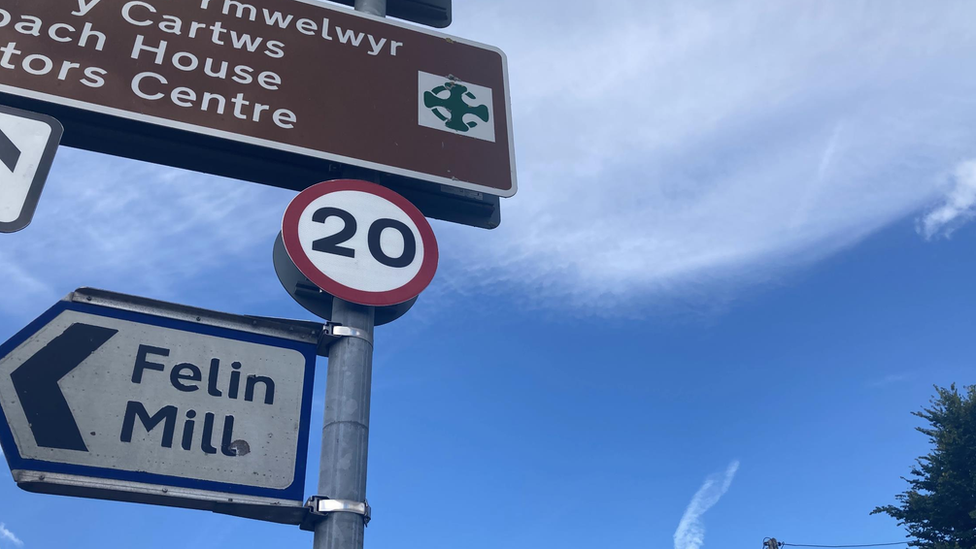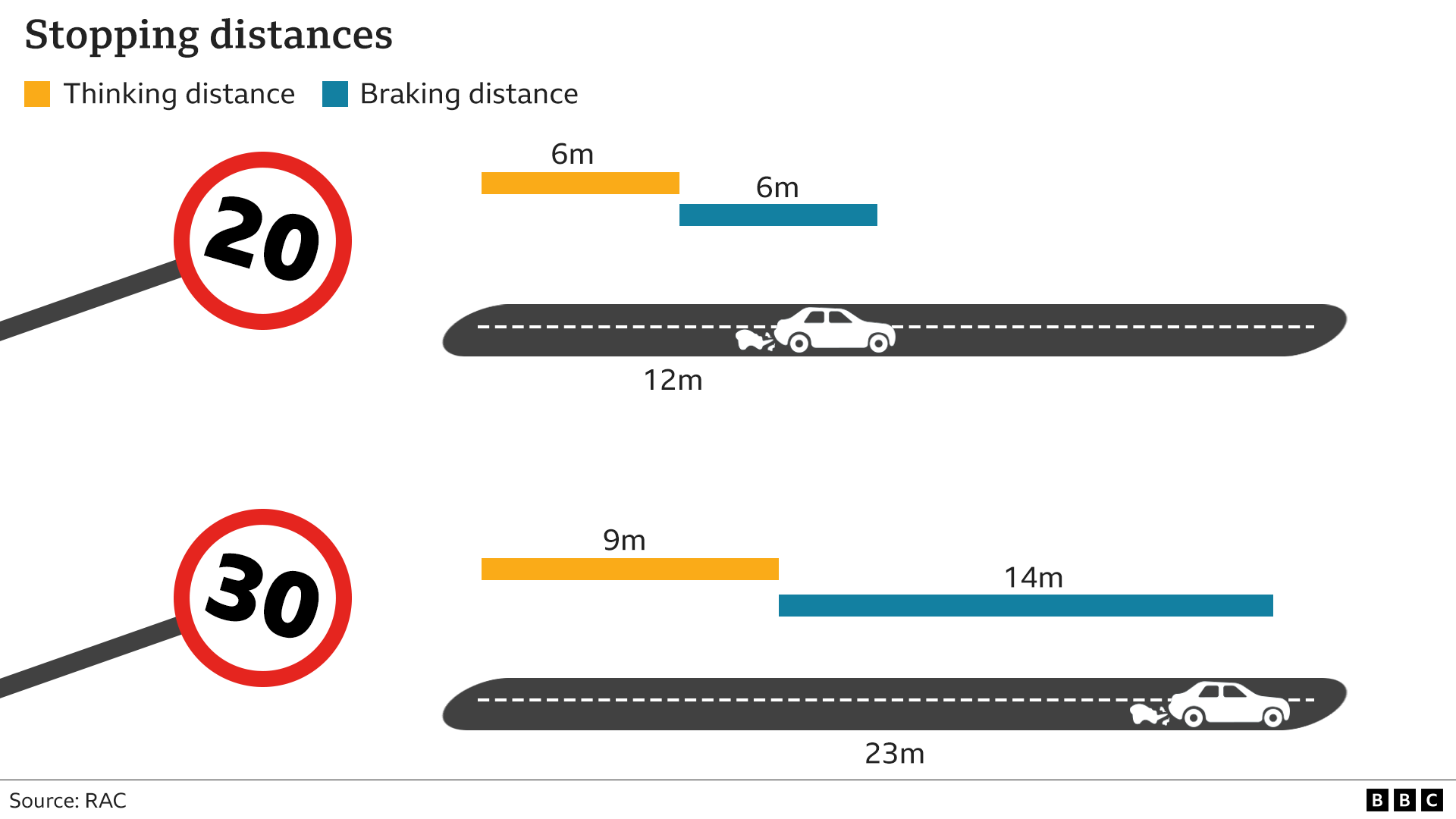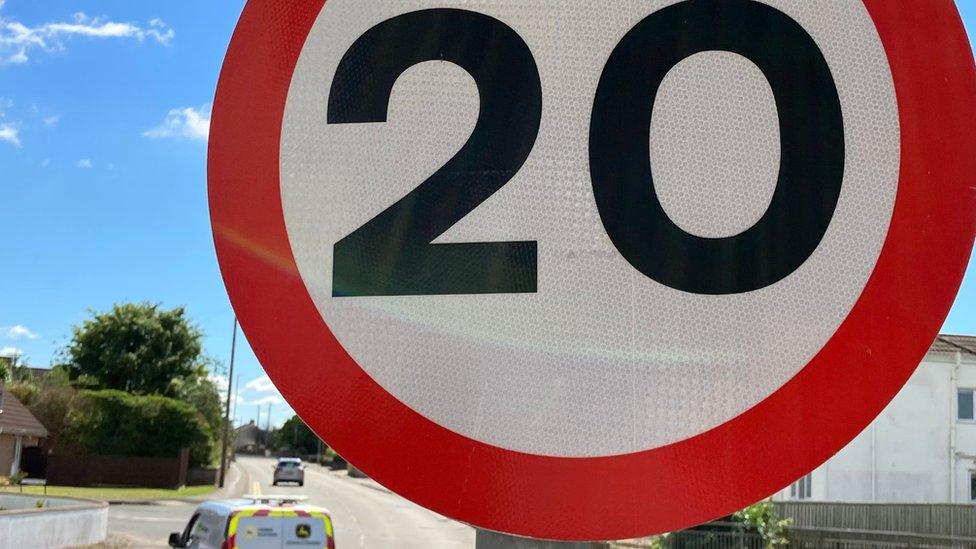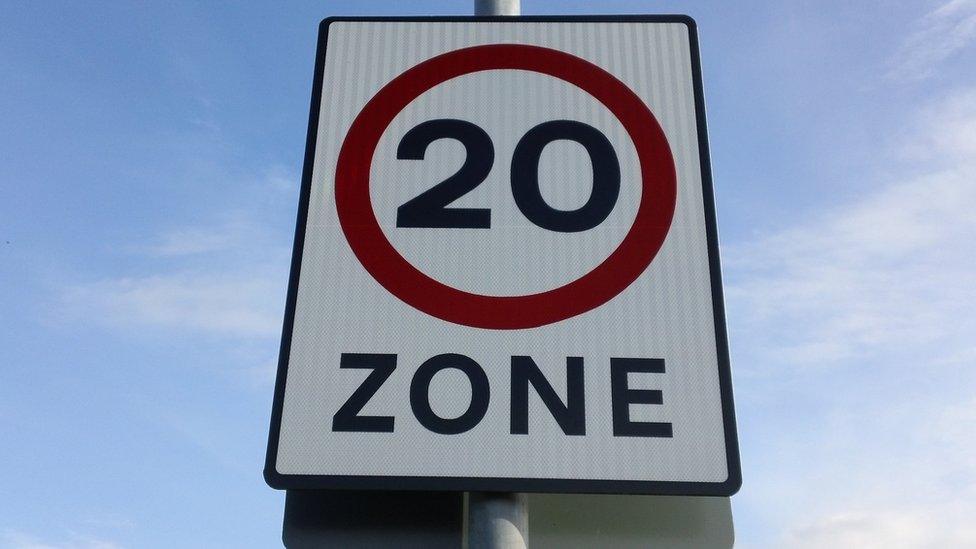Speed limit: Driver says 20mph speed limit saved boy's life
- Published

Wyn Rees is relieved he did not hit the boy
A driver has said a pilot 20mph zone meant he did not hit a 12-year-old boy after he failed to spot him running across a road.
Wyn Rees said he managed to stop in time and avoid hitting the boy because of the reduced speed.
From 17 September, 20mph (30km/h) will be the default speed limit on restricted roads across Wales.
The Welsh government said the change would save lives and cut pollution.
Latest data, external shows 20 people are killed or seriously injured on Welsh roads every week.
Restricted roads are defined as ones with lampposts placed no more than 200 yards (0.11m) apart - they are typically located in residential and built-up areas with high pedestrian activity.
The boy was crossing a road in St Dogmaels, Pembrokeshire, in April after another driver signalled to him, causing confusion.
"[The driver] stopped just a foot away from my son, but was able to brake and basically save his life and not hit him because he was doing 20mph," the boy's mother said.

In a months' time, 20mph will be the default speed limit on restricted roads across Wales
Mr Rees said he believed if he had been travelling at the old speed limit of 30mph (50km/h), he may not have been able to stop in time.
"Luckily I was doing 20mph. At 30mph I would've hit him," he said
He believes the new pan-Wales speed limit is a "very good idea", but thinks it should be reviewed for roads which do not have houses built on either side.
Where is the 20mph limit being introduced?
The lower speed limit has already been introduced in some places as part of a pilot scheme running since 2021.
They are St Dogmaels, St Brides Major in the Vale of Glamorgan, Llanelli (north), Buckley in Flintshire, Cardiff (north), Cilfrew in Neath Port Talbot, Abergavenny and Caerwent, Caldicot, Magor and Undy in Monmouthshire.
Dr David Hanna, University Hospital of Wales' paediatric emergency consultant, said he welcomed the policy and it would "help reduce the number of collisions and severity of injuries".
"Children have less road awareness than adults and can be difficult to see," he said.
"They also tend to be struck higher on the body than adults due to their smaller height, and are more likely to suffer severe injuries as a result."
But not all drivers in Wales support the change, with some protesting by tying red ribbons to their cars.
Concerns have also been raised that the new limit will affect the speed police travel to emergencies.
But Wales' chief medical officer said evidence from abroad suggests the policy would be accepted over time.
Dr Frank Atherton said: "When we look globally at the evidence, we can see that these changes, although they can often be difficult to implement, they are generally very popularly received by communities."

Data from the areas of Wales piloting the 20mph speed limit shows the number of drivers complying rose from 45% at the start of the trial to 64%.
Many areas of London now have 20mph as the default speed for residential roads, while Scotland plans to follow Wales' lead and make the policy nationwide by 2025.
Dr Sarah Jones, consultant in environment public health at Public Health Wales, said the change in policy could have a big impact on the Welsh NHS because of a "reduction of casualties of about 40%".
"That straight away means fewer people coming through the doors of accident and emergency and crashes, and casualties that do occur will tend to be less serious," she said.
"There are many, many wider health benefits including encouraging more people to walk and cycle and producing less pollution."
The Welsh government said: "Decreasing speeds not only reduces collisions and saves lives but improves the quality of life, making room on our streets for safer active travel, whilst helping reduce our environmental impact.
"Changing the default speed limit on restricted roads in Wales to 20mph does not impact on the legislation that allows police, fire and ambulance services to exceed speed limits in the course of emergency response duties."
Welsh Conservatives Shadow Transport Minister, Natasha Asghar MS said: "Welsh Conservatives continue to support 20mph speed limits in heavily pedestrianised areas, such as outside schools and hospitals.
"Nevertheless, we cannot support blanket 20mph zones across the whole of Wales, which will slow Wales down and cost the Welsh economy £4.5bn. This ludicrous blanket policy must be scrapped."

MYFANWY HAYCOCK: Jenni is on a mission to revive the legacy
ALL THINGS CONSIDERED: Oppenheimer and the Bomb

- Published23 April 2024

- Published2 August 2023

- Published19 January 2022
